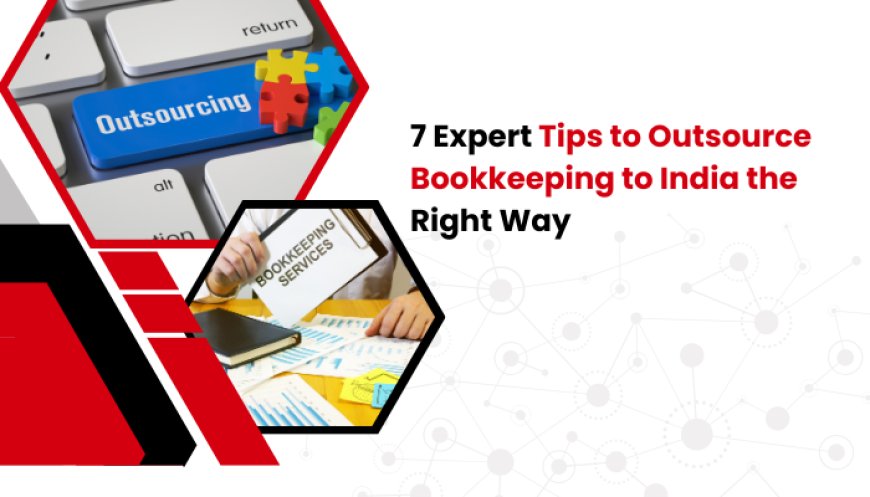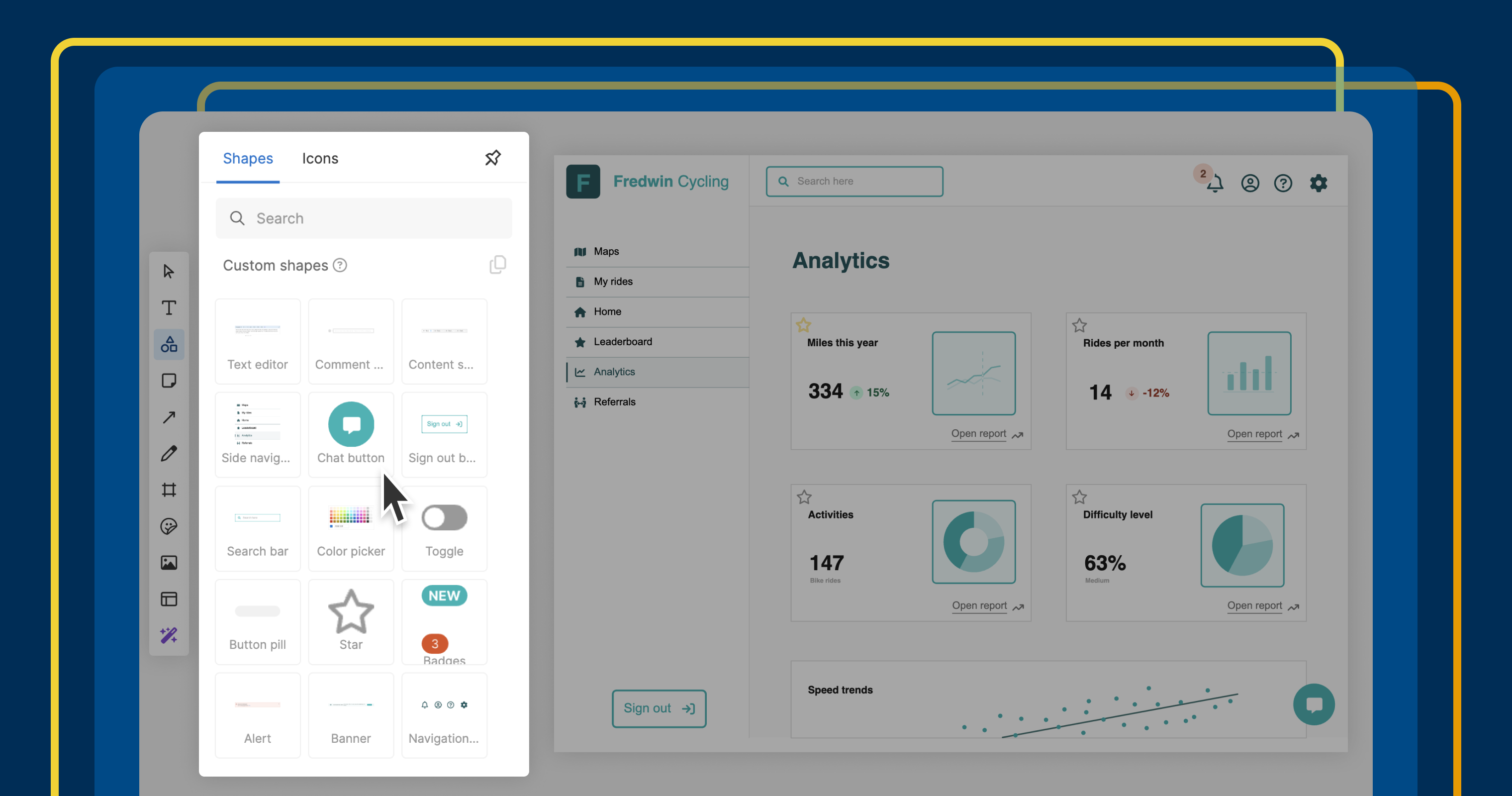7 Expert Tips to Outsource Bookkeeping to India the Right Way
Discover 7 expert tips to outsource bookkeeping to India effectively. Save costs, improve accuracy, and streamline your financial operations.

The books don’t balance themselves. And as businesses expand, financial accuracy becomes a matter of survival—not just preference. If your in-house team is overwhelmed or you're watching costs like a hawk, the decision to outsource bookkeeping to India might already be on your radar.
But there's more to it than forwarding spreadsheets and hoping for the best. Outsourcing, when done correctly, can reduce expenses, boost efficiency, and enhance compliance. When done poorly? It can create confusion, misstatements, and even tax liabilities.
Below are seven field-tested tips to help you outsource bookkeeping to India with confidence and clarity.
1. Understand the Why Behind Your Decision
Before you even begin your search, clarify why you're outsourcing. Cost is a natural driver, but that alone won’t keep your financial systems intact. Consider other benefits that come with this move:
-
Access to skilled professionals with expertise in global accounting standards
-
Scalability for growing businesses
-
Reduction of internal workload
-
Faster turnaround times
When you understand your "why," you can align it with the right partner and performance metrics.
2. Choose a Partner with Industry-Specific Experience
Not all bookkeeping services are created equal. If you run a SaaS business, your financial workflows differ vastly from a law firm or eCommerce store. Choosing a provider that understands your vertical can save you hours in onboarding and avoid costly misclassification errors.
Look for firms that:
-
Have worked with businesses of your size and industry
-
Are familiar with your local tax codes or have experience working with your CPA
-
Understand compliance needs, such as GAAP, IFRS, or tax reporting standards relevant to your country
A little industry familiarity goes a long way when you outsource bookkeeping to India.
3. Vet Their Data Security Infrastructure
Financial data is sensitive by nature. When sharing books, payroll, and tax details across borders, you can’t afford to take chances on data protection.
Here are critical areas to inspect:
-
Encryption protocols: Are communications and stored data encrypted end-to-end?
-
ISO certification: Does the firm comply with ISO 27001 or similar data security standards?
-
NDAs and contracts: Do they offer legally binding confidentiality agreements?
-
Cloud-based tools: Are they using secure cloud platforms like QuickBooks Online, Xero, or Zoho Books?
Asking these questions upfront demonstrates professionalism and filters out firms with poor infrastructure.
4. Start Small Before Going All In
Even if you're fully sold on the benefits, there’s wisdom in gradual onboarding. It’s a simple way to assess real-world capability, accuracy, and communication style before giving full access to all your books.
Begin with:
-
One business unit or a smaller subsidiary
-
Specific bookkeeping tasks like accounts payable or reconciliations
-
A 30- to 60-day trial period
During this pilot phase, monitor the firm’s responsiveness, adherence to deadlines, and overall competency. This minimizes risk and builds mutual trust.
5. Set Clear Expectations and KPIs
A good outsourcing relationship runs on structure and transparency. You must define not just what needs to be done, but when, how, and by whom.
Establish expectations around:
-
Turnaround times for different tasks (e.g., weekly bank reconciliation or monthly reporting)
-
Communication cadence, such as weekly Zoom calls or daily Slack updates
-
Tool preferences, including software platforms, file formats, and workflows
-
KPIs, like error rates, report delivery timelines, and year-end audit readiness
The more you treat your bookkeeping partner as part of your team, the more accountable they’ll feel.
6. Choose Communication Over Micromanagement
Outsourcing across time zones can either be a smart productivity play or a source of endless emails, depending on how communication is handled.
Rather than constantly checking in, design a workflow that encourages autonomous work with structured updates. That means:
-
Shared dashboards for real-time progress updates
-
Scheduled reviews instead of ad-hoc interruptions
-
Documentation for recurring processes to reduce reliance on emails
Let your outsourcing team do what they do best while keeping them aligned with your business rhythm.
7. Reinvest the Time and Money You Save
Cost-cutting is only half the equation. The real ROI of outsourcing arrives when you reinvest those savings strategically—into marketing, product development, customer service, or training.
You also gain time. Use that bandwidth to strengthen decision-making, refine your financial forecasting, or dive deeper into your business's core metrics.
Potential areas to redirect savings:
-
Hiring senior financial analysts for strategic planning
-
Running paid campaigns for business development
-
Improving employee benefits or training programs
Don’t just outsource to save—outsource to grow.
Final Thoughts
The decision to outsource bookkeeping to India is no longer just about affordability, it's about leverage. It’s a way to harness global talent, tighten operations, and turn your books into a competitive asset.
But success hinges on choosing the right partner, setting the right boundaries, and building the right systems for collaboration.
If you follow these expert tips, you won’t just be handing off tasks—you’ll be building a reliable, scalable extension of your financial team.
Click here to read more articles: newsquo.com

























































































































![Are AI Chatbots Replacing Search Engines? AI vs Google [New Research]](https://www.orbitmedia.com/wp-content/uploads/2025/05/How-often-are-we-using-AI-chatbots_.webp)





























